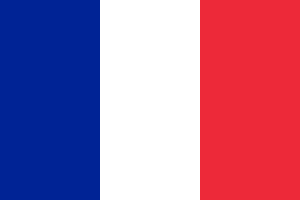French Language

It is the official language of France. It is also the official language in 29 other countries that belong to la francophonie, a group of French-speaking nations. Countries or people that speak it are called Francophones. Regions of other countries such as parts of Canada and United States, Switzerland, Belgium, Monaco, and some parts of Africa and Asia too have significant numbers of French speakers. Basically, the countries where this language had colonised at some point of time still have French as an important part of their lives. Strangely, it was spoken more widely in Germany and Holland than in France till the 19th century.
There are more than 220 million speakers of the language all over the world. It is among the top five languages spoken in Europe. It has been the language of science, commerce, diplomacy, and literature for hundreds of years. It is also one of the official languages of many world organisations such as United Nations, International Olympic Committee, World Trade Organization, NATO, and the European Union.
It belongs to the set of languages known as Romance languages. It is considered the second most influential language worldwide after English. Most countries of the world have French as a subject taught in schools. It is also the language of courts and is used in courts such as the International Court of Justice and European Court of Human Rights, besides others. In fact, in the Court of Justice Of The European Union, it is the sole language in usage.
The language consists of 26 letters in the alphabet with five diacritics and two orthographic ligatures. The language has evolved over time, thus showing changes in the pronunciation. However, the spellings remain the same as they were in Old French that was used between the 9th and 13th century, which leads to confusion between the actual spelling and sound. The written French first made its appearance in 842 AD when it was used to pen the Strasbourg Oaths. Before this, Latin was the common language used for literature.
It has lent itself to many languages, including English which has many words and expressions that are borrowed from French. Cardinal Richelieu, in 1635, set up the Académie Française which lays down the rules of French language and grammar till date. Unlike English, it depends on the syntax, morphology, and inflexion of voice to determine the meaning of a sentence.
Copyright © 2013-2024 All Rights Reserved